- Home
- Kristin Harmel
The Sweetness of Forgetting Page 35
The Sweetness of Forgetting Read online
Page 35
“Hope,” Gavin says finally. “It’s never too late.”
I hear his Jeep in my driveway fifteen minutes later, and he’s at my door just before the clock strikes midnight. I’m already waiting for him, with the door wide open, not caring that the coldness of the night is pouring in. It doesn’t matter anymore.
“Hi,” Gavin says as he comes up beside me in my doorway.
“Hi,” I reply. We stare at each other, and Gavin reaches for my hand. He’s not wearing gloves, and neither am I, but there’s a heat between us, and every cell of my body feels like it’s on fire, despite the iciness outside. From somewhere in the distance, we can hear the faint strains of a countdown, and then a muffled cheer as the New Year begins.
“Happy New Year,” Gavin says, taking a step closer.
“Happy New Year,” I murmur.
“To new beginnings,” he says. And before I can reply, his arms are around me, and his lips are on mine.
Above us, the stars twinkle and dance, winking down at us from the endless sky.
Acknowledgments
This is the book I’ve been wanting to write for years, and seeing this come to fruition has taught me some important lessons about following my heart and surrounding myself with wonderful, decent people whom I truly trust and cherish. My agent, Holly Root, and my editor, Abby Zidle, are both incredibly kind, hardworking, wise, and talented, and I can’t even begin to sufficiently express how much I appreciate all their effort, insight, friendship, and encouragement. I think I’m the luckiest girl in the world to be working with them.
Agent Farley Chase has been an absolute rock star of foreign rights, and the lovely Andy Cohen has my West Coast calendar full. I’m also very grateful to Lindsey Kennedy, Beth Phelan, Parisa Zolfaghari, Jane Elias, Susan Zucker, Jennifer Bergstrom, and Louise Burke for the roles they’ve all played in making this novel a reality. I don’t think it would be possible to find a kinder, more supportive team.
Novelist Wendy Toliver has been an incredible sounding board, friend, early editor, and brainstorming partner; I also want to thank Anna Haze—who died far too early, at the age of nineteen—for bringing Wendy and me together. What a wonderful gift. Henri Landwirth, the first Holocaust survivor I ever met, was a great inspiration. Lauren Elkin, my close friend and old Paris roommate, once again put a roof over my head during a research trip to the City of Light; her first novel (Cités Flottantes) came out in April 2012 in France, and I couldn’t be happier for her.
I’d like to thank the many people who have gone out of their way to answer questions about factual points in this book. Darlene Shea of Brewster Fire & Rescue helped with an early draft, and Danielle Ganung helped answer bakery question. Karen Taieb from the Mémorial de la Shoah in Paris was incredibly helpful with my Holocaust research in France. Bassem Chaaban, the director of operations for the Islamic Society of Central Florida, and Rabbi Rick Sherwin of Congregation Beth Am in Orlando, were kind enough to help me fact-check some of my religious and cultural references. Any errors are my own.
Big thanks also to Kat Green, Tia Maggini, Vanessa Parise, Nancy Jeffrey, Megan Crane, Liza Palmer, Sarah Mlynowski, Jane Porter, Alison Pace, Melissa Senate, Lynda Curnyn, Brenda Janowitz, Emily Giffin, Kate Howell, Judith Topper, Betsy Hansen, Renee Blair, GK Sharman, Alex Leviton, Kathleen Henson, Anna Treiber, and Jen Schefft Waterman, who have been great sources of professional inspiration, brainstorming, and friendship over the years! Thanks also to the Daily Buzz crew, especially Brad Miller, Andrea Jackson, Andy Campbell, Mitch English, Kia Malone, KyAnn Lewis, Michelle Yarn, and Troy McGuire.
Thanks to my many, many other wonderful friends, including: Marcie Golgoski, Kristen Milan Bost, Chubby Checker (and his wonderful wife and kids), Lisa Wilkes, Melixa Carbonell, Scott Moore, Courtney Spanjers, Gillian Zucker, Amy Tan, Lili Latorre, Darrell Hammond, Krista Mettler, Christina Sivrich, Pat Cash, Kristie Moses, Lana Cabrera, Ben Bledsoe, Sanjeev Sirpal, Ryan Moore, Wendy Jo Moyer, Amy Green, Chad Kunerth, Kendra Williams, Tara Clem, Megan Combs, Amber Draus, Michael Ghegan, Dave Ahern, Jean Michel Colin, John and Christine Payne, Walter Caldwell, Scott Pace, Ryan Provencher, and Mary Parise. I’m incredibly lucky to have such wonderful people in my life.
A special thank you to Jason Lietz—for everything.
I’m also blessed with the world’s greatest family, including my mom, Carol (the most supportive person in the universe); my sister, Karen; my brother, Dave; and my dad, Rick. Thanks also to my brother-in-law Barry Cleveland, my aunt Donna Foley, my stepmother, Janine, my cousin Courtney Harmel, my grandparents, and everyone else, including Steve, Merri, Derek, Janet, Anne, Fred, Jess, and Greg. I love you all so much.
The Sweetness of Forgetting
KRISTIN HARMEL
INTRODUCTION
To say that Hope McKenna-Smith’s life hasn’t turned out quite the way she planned would be an understatement. At thirty-six, she’s a law school dropout, a divorcée, the owner of a nearly-bankrupt bakery in a Cape Cod tourist town, and the caretaker of her beloved, Alzheimer’s-stricken grandmother, Mamie. When Mamie suddenly presents Hope with a list of names and urges her to travel to Paris to find these mysterious strangers, Hope nearly dismisses the request as yet another one of her grandmother’s delusions. But when she decides to take a chance on the unknown, Hope embarks on a trip of a lifetime; one that will take her both through Mamie’s haunted past and through her own journey of self-discovery.
TOPICS & QUESTIONS FOR DISCUSSION
1. Readers first encounter Mamie when she is sitting by her window at l’heure bleue waiting for the stars to come out as she does every day. Why is it so important for Mamie to gaze at the stars every evening, and what do the stars come to symbolize? Why does she name her bakery after the North Star?
2. Describe Hope’s relationship with her daughter Annie at the beginning of the novel. How are they similar? How are they different from one another? How does their relationship change over the course of the novel? How does their quest to discover Mamie’s past affect their relationship?
3. In contrast to Mamie and Jacob’s belief in love at first sight, Hope has resigned herself to the idea that she will never find true love. How and why does Hope’s attitude to love change throughout the novel? How do her interactions and conversations with the men in the novel—Gavin, Alain, and Jacob—serve to change how she feels about love? Do you believe in love at first sight?
4. How does food serve as a bridge between cultures and characters throughout The Sweetness of Forgetting? What memories and traditions are baked into Hope’s creations, and how does baking help her preserve the past? What does Hope gain when she learns about the unexpected origins of her creations, particularly the Star Pie?
5. Describe Mamie’s belief in God, prayer, and religion. How difficult do you think it was for her to hide her true religion over the years, and how does it change her as a person? How was she was able to maintain her Jewish faith while practicing as a Roman Catholic for so many years? Of the differences between religions, what do you think Mamie means when she says: “It is mankind who creates the differences. That does not mean it is not all the same God”?
6. As Mamie struggles to remember her past, Hope meets people like Olivier Berr who help fill in the ever-expanding holes in her grandmother’s memory. How does Hope’s newfound understanding of Mamie’s past help her make sense of her own upbringing and family troubles? Why do the people that Hope meets feel compelled to preserve such a painful history? What do you think would be lost if Hope was not able to find the people who played a role in Mamie’s story?
7. Do you think that Mamie should have told Josephine about her past (or told Hope earlier)? Why or why not? What would you have done if you were Mamie? What impact does keeping such a monumental secret have on Mamie, and on future generations?
8. Elida White introduces Hope and Annie to the Albanian word besa, the act of taking care of those in need. In addition to the Muslims who took in Mamie during World War II, how
do the characters of the novel practice besa toward one another? Why is it so difficult for Hope to accept that others want to take care of her, particularly Gavin?
9. How does Hope’s relationship with her mother influence how she raises Annie? What does it mean for Annie and Hope to grow up with such strong and independent women as their mothers, and fathers who are largely absent from their lives?
10. Why is it so important for Hope to keep the North Star Bakery in business? What would be lost if the bakery closed?
11. Hope grew up listening to Mamie’s fairy tales, but she never imagined that the stories were anything but fantasy. What purpose and meaning do the stories serve for the storyteller—Mamie—and the listener—Hope, and later Annie? How does Hope’s understanding of the stories shift as the novel progresses? How do these stories impact Hope’s views on love and fate?
12. Discuss the ending of the novel. Were Mamie and Jacob’s sacrifices for one another worth the suffering that they endured in the end? How does their reunion personally impact each character? What does Hope learn from Mamie’s final letter, and how does it allow her to move forward with her life?
ENHANCE YOUR BOOK CLUB
1. Bake a treat for your book club using one of the North Star Bakery recipes . . . or make something that reflects your family’s heritage! If you have Irish ancestors, make soda bread, or if your family is from Greece, try your hand at baklava! For more ideas and recipes, visit www.world-recipes.info
2. Test your memory skills by playing a game of “Memory” with your book club members. All you need is a standard fifty-two deck of cards. Shuffle the cards and lay them on a flat surface in a square pattern face down. On each turn, a book club member must select two cards. If the cards match, the player keeps the set and takes another turn. If the cards do not match, return the cards face down and move on to the next book club member’s turn. Visit boardgames.about.com/od/cardgames/a/concentration.htm for the full rules and suggestions for how to make the game more challenging! Discuss with your group how it felt to actively try to remember when playing the game. Were you ever frustrated?
3. Consider attending a religious or spiritual service that differs from your own beliefs with your book club members. Discuss what was similar to what you are accustomed to, and what was different. Did you learn anything from your visit? Did it raise any questions about your own beliefs?
We hope you enjoyed reading this Gallery Books eBook.
Sign up for our newsletter and receive special offers, access to bonus content, and info on the latest new releases and other great eBooks from Gallery Books and Simon & Schuster.
or visit us online to sign up at
eBookNews.SimonandSchuster.com

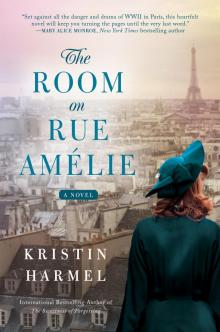 The Room on Rue Amélie
The Room on Rue Amélie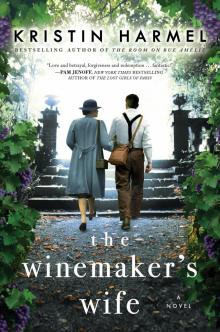 The Winemaker's Wife
The Winemaker's Wife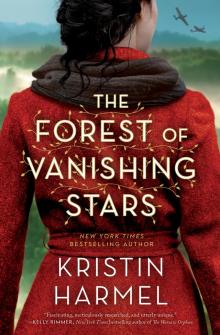 The Forest of Vanishing Stars
The Forest of Vanishing Stars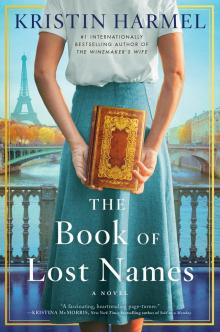 The Book of Lost Names
The Book of Lost Names Italian for Beginners
Italian for Beginners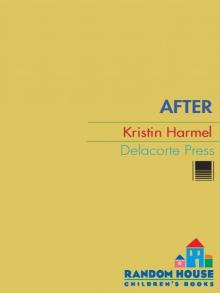 After
After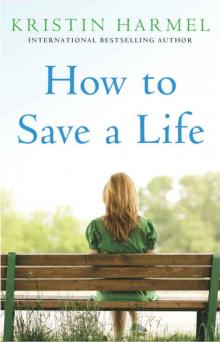 How to Save a Life
How to Save a Life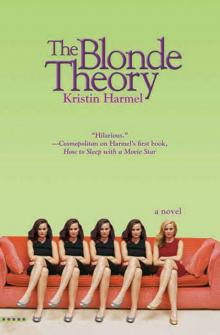 The Blonde Theory
The Blonde Theory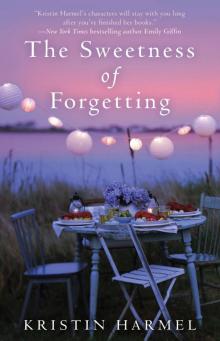 The Sweetness of Forgetting
The Sweetness of Forgetting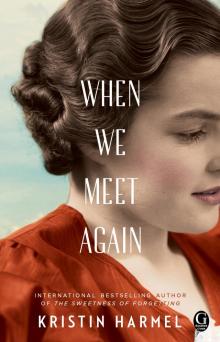 When We Meet Again
When We Meet Again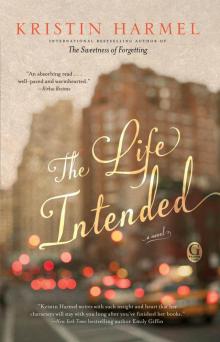 Life Intended (9781476754178)
Life Intended (9781476754178)